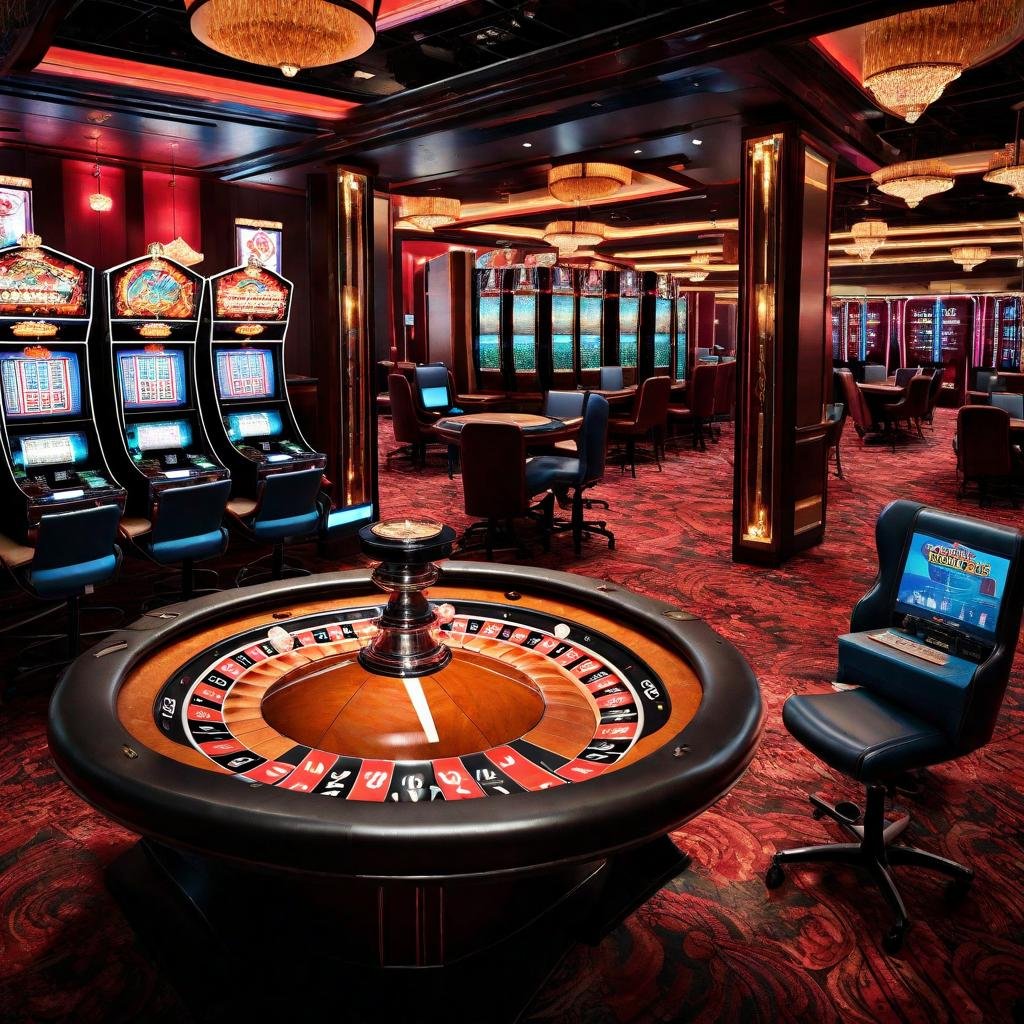When we think of gambling games, the first images that frequently cross our minds are those of rotating roulette wheels, card tokens clattering on felt surfaces, and dice flying across a gaming surface. While numerous view these games as simple pastimes fueled by luck, a deeper exploration reveals a captivating blend of strategy, expertise, and community engagement that elevates them far beyond simple chance. Regardless of whether you are a seasoned player or a inquisitive newcomer, grasping the subtleties of these activities can significantly enhance your enjoyment and appreciation.
Casino games have evolved over centuries, with different cultures contributing to their diverse histories and variations. From the intricate tactics of blackjack to the bluffing tactics in card games, players engage in a contest of intellect as much as a risk on odds. This dynamic interplay between luck and skill creates a exciting atmosphere that draws countless people to gambling establishments worldwide. As we explore the realm of table games, we will reveal the methods that can shift the odds in your advantage and the social aspects that make these activities a favored choice for leisure and interaction.
A Strategy of Table Games
Table gaming frequently combine a blend of skill and luck, making them intriguing for participants who like a challenge. Each title has their unique set of guidelines and strategies that can influence the outcome. For example, in titles like blackjack, players are required to use strategies like counting cards and grasping the probabilities to make smart decisions. This skill set can significantly improve the winning potential, distinguishing seasoned participants from beginners who may depend entirely on chance.
Conversely, games such as roulette may appear to be purely based on luck, but tactical thinking can also play into play. Players can choose between various betting tactics, such as the Martingale strategy, where they increase their bets after a loss. This method can establish a more controlled way to the game. Understanding the odds of specific bets can also assist players make better decisions on the roulette table, demonstrating that even in titles of luck, tactics can enhance the enjoyment.
Furthermore, the game of poker is notable as a title that heavily focuses on strategy. Unlike most casino games, poker combines ability, psychology, and chance. Players must also focus on the cards they are dealt but also take into account their rivals’ actions and wagering patterns. pragmatic4d Mastering concepts like position, pot odds, and reading bluffs is crucial for success. This depth of tactics in poker often creates to a more immersive experience for players, where their decisions and abilities significantly impact the game’s results.
Grasping Probability and Odds
In the realm of casino activities, likelihood and odds play a vital role in determining a gambler’s potential consequences. Every activity has its own set of rules that dictate how the probability of succeeding or losing is calculated. For case, in games like 21, players have a chance to influence their ratios through strategy, whereas in games like roulette, the results are entirely governed by chance. Grasping how these probabilities are measured can greatly impact how a gambler deals with the game.
Ratios are typically shown in two formats: fractional and decimal. Ratio ratios show the proportion of the sum gained to the sum staked, whereas numeric odds show the overall payout for a winning bet, which includes the stake. For example, if a game has ratios of 5 to 1, this implies that for every one unit staked, a player could win five dollars if they win. Learning how to understand these odds allows gamblers to evaluate their potential earnings and formulate more informed decisions during gameplay.
Players should also be aware of the casino advantage, which is the casino’s inherent advantage over the players. Each match has a different advantage, and understanding this idea is important for handling one’s expectations and budget. Games with a lower house edge, such as blackjack and chemin de fer, typically offer better ratios for players compared to games like slots and keno. By recognizing the relationship between probability, ratios, and the casino advantage, gamblers can enhance their gambling engagement and strategize more efficiently.

The Social Aspect of Table Gaming
Casino games at gaming establishments are often seen as a center of social interaction, drawing participants together in a shared experience that goes far beyond the mere act of gambling. The atmosphere at a blackjack table can be electric, with players engaging not only with the game itself but also with each other. Laughter, cheers, and, occasionally, playful teasing create connections that enhance the overall experience of the gaming experience. This communal aspect can turn a solitary endeavor into a lively social event, making casino games particularly appealing.
One of the fascinating elements of table gaming is the way it cultivates camaraderie among participants. Whether it’s collaborating to beat the dealer at a craps table or exchanging tales between hands in a card game, the environment encourages communication. Participants often share tips or tactics, creating a sense of togetherness that enhances the fun. This interpersonal atmosphere can make new players feel included and less daunted by the competitive nature of casino games. As the game progresses, friendships may form, leading to a sense of belonging that keeps players returning to the table.
Moreover, the social aspect of table gaming extends outside just the participants. Casino staff play a crucial role in facilitating interaction and maintaining the flow of the game. Their ability to engage players with friendly conversation and their expertise in running the table can create an inviting atmosphere. This relationship between players and staff adds another layer of enjoyment, where gamblers feel bonded not only to each other but also to the staff. Such interactions are often what make the experience memorable, as participants leave with tales to tell and relationships made, reinforcing the notion that table games are truly about something greater than luck.